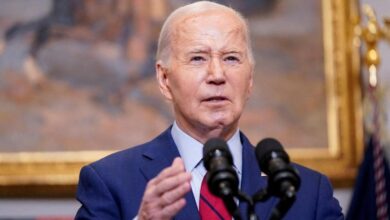Why Who You Are Will Always Show Up in What You Do

In today’s world, skill and talent are revered. We celebrate brilliance, innovation, and results. We hand out titles, promotions, and influence based on performance metrics and professional output. Yet, too often, we forget a fundamental truth: character is the foundation of every career, and sooner or later, it will show up in your brand. If I have meant something in the last few days, it is the fact that Character may not be visible but it is the anchor of every brand we build.
The recent resignation of Astronomer CEO Andy Byron, following a viral kiss-cam scandal at a Coldplay concert, is a case in point. Byron wasn’t just any leader; he was a brilliant tech executive steering a billion-dollar company. His resignation wasn’t triggered by a lack of competence or performance failure, it was character that caught up with him. The personal slipped into the professional. And it cost him everything.
The Myth of Separation
Many of us, including myself, have bought into the illusion that we can neatly separate our personal lives from our professional ones. We tell ourselves that what we do after hours has no bearing on what we do from 9 to 5. But that’s not how real life or leadership works.
Character is not a costume we take off when we log out- It is who we are. And whether we like it or not, who we are will eventually shape what we do, how we lead, how we make decisions, how we treat people, and how we are perceived by those who entrust us with influence.
Talent Gets You There. Character Keeps You There.
You can be the smartest, the most visionary, the most capable in your field, but if your integrity is questionable, you are walking a tightrope with no safety net. Talent may open doors, but only character can keep those doors open.
A person who lacks self-control in their personal life may eventually lose control in their professional decisions. A person who is dishonest behind closed doors may cut corners when no one is watching. It’s all connected. Every choice we make in private prepares us for who we will become in public.
And in today’s digital world, there are few private corners left. A single moment captured on screen, exposed online, or whispered in boardrooms, can erase decades of hard-earned credibility.
The Ghanaian Reality: Character in Our Own Backyard
This is not just a foreign lesson, it’s a local truth as well. Ghana has had its own share of cautionary tales that reinforce this principle.
Kwesi Nyantakyi, once celebrated as one of Africa’s most influential sports administrators, saw his career collapse not because of football mismanagement, but because of personal ethical lapses exposed in the #Number12 investigative documentary. Despite his impressive credentials, his character flaws became the headline and ultimately ended his professional journey.
Cecilia Dapaah, a respected former Minister for Sanitation, resigned in the wake of a scandal involving large sums of foreign currency allegedly stolen from her home. While no definitive legal ruling was issued, the situation raised serious questions about propriety and public perception. Her competence was never the issue her personal conduct was.
Even in religious circles, many leaders whose following their vast achievements, have seen their credibility eroded by repeated episodes of questionable personal behavior. These incidents often blur the lines between personal identity and public responsibility, further proving the point: you cannot divorce who you are from what you do.
The Unseen Work: Building a Reputation That Lasts
Character doesn’t trend. It’s not flashy. It’s the quiet decisions: choosing honesty over convenience, owning mistakes, treating people with respect even when there’s no reward for it. It’s how we behave when no one is watching and how we respond when everyone is.
Building character takes time. It means doing the hard internal work of aligning your values with your actions. It means recognizing that leadership is not just about vision or execution; it’s about trust. And trust is never built on skills alone.
A Call to Professionals and Leaders
Let the fall of Andy Byron and our own Kwesi Nyantakyis and Cecilia Dapaahs remind us: your brand is not just your logo, your résumé, or your public presence, it’s your life. Your career is not built in isolation from your character. They are one and the same.
As professionals, as leaders, as human beings—we must rise above the notion that talent is enough. The most enduring legacies are not built on skill, but on substance.
Let me be clear, I am not writing this because I am a saint. I, too, have aspects of my character that, if left unchecked, can damage everything I’ve worked for. And you, the reader, may also carry certain traits, habits, or tendencies that could one day undermine your credibility, your leadership, or your dreams. But we must start thinking seriously about how to make amends from today.
We all have blind spots. The difference is in who chooses to confront them before they confront us.
So the next time we update our CV, build our company, launch a product, or take the stage, we must remember this: what people remember most is not just what you built, but who you were while building it.
By Bismark Odum-Sackey, PhD




